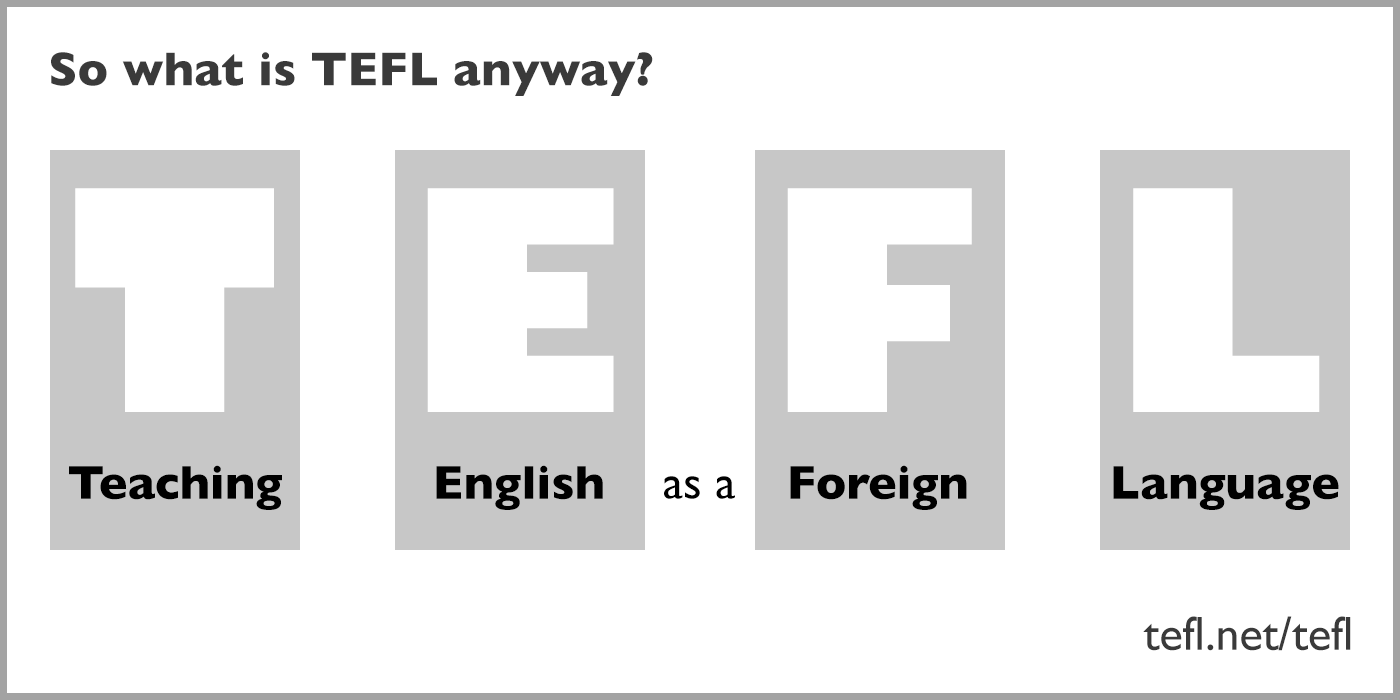What is TEFL?
And The Definitive Guide to TEFL

The acronym "TEFL" stands for "Teaching English as a Foreign Language".
When people say "TEFL", they are generally referring to a world of English teaching, where the students are not native speakers of English, and where the teachers may or may not be native speakers of English.
TEFL exists in practically every country worldwide because the demand for learning English has never been higher. TEFL exists in countries where English is not the first language (for example Brazil, China, France) as well as in countries where English is the first language (for example Australia, Canada, United Kingdom).
Note that TEFL refers to the teaching of English, not its learning. It therefore concentrates more on teachers or those wishing to teach rather than on learners. (Of course, teachers have to know a lot about learning, but that is another matter.)
The range of situations where people are teaching English as a foreign language is very broad. Easily the greatest number of TEFL teachers worldwide are indigenous teachers working in local primary and secondary schools (for example, a Brazilian teacher of English teaching English to Brazilian schoolchildren in their local school). This is due to the sheer population numbers involved and the fact that so many schoolchildren worldwide learn at least some English at school. However, beyond that there is still a vast range of TEFL situations, including:
- private language schools
- corporate training departments
- kindergartens
- universities
- government-sponsored programmes
- private/freelance teaching
- summer camps and charity organizations
Learners of English are students of all ages, from small children to octogenarians. They are all levels, from absolute beginner to virtually fluent. They could be studying in "one-to-one" classes or in groups ranging from 3 to over 50 students. Sometimes they study by telephone or online. Apart from learning "general English" (ie, grammar, conversation, reading/writing etc), many learners also take more specialized classes, eg exam preparation, academic English or business English.
TEFL teachers fall into two loose groups:
1. native English-speaking teachers, for example
- an Australian teacher of English teaching English to immigrants in Australia
- a Canadian teacher of English teaching English to Brazilian students in Brazil
2. non-native English-speaking teachers, for example
- a Thai teacher of English teaching English to Thai schoolchildren in Thailand
- a Polish teacher of English teaching English to French students in France
The Definitive Guide to TEFL
